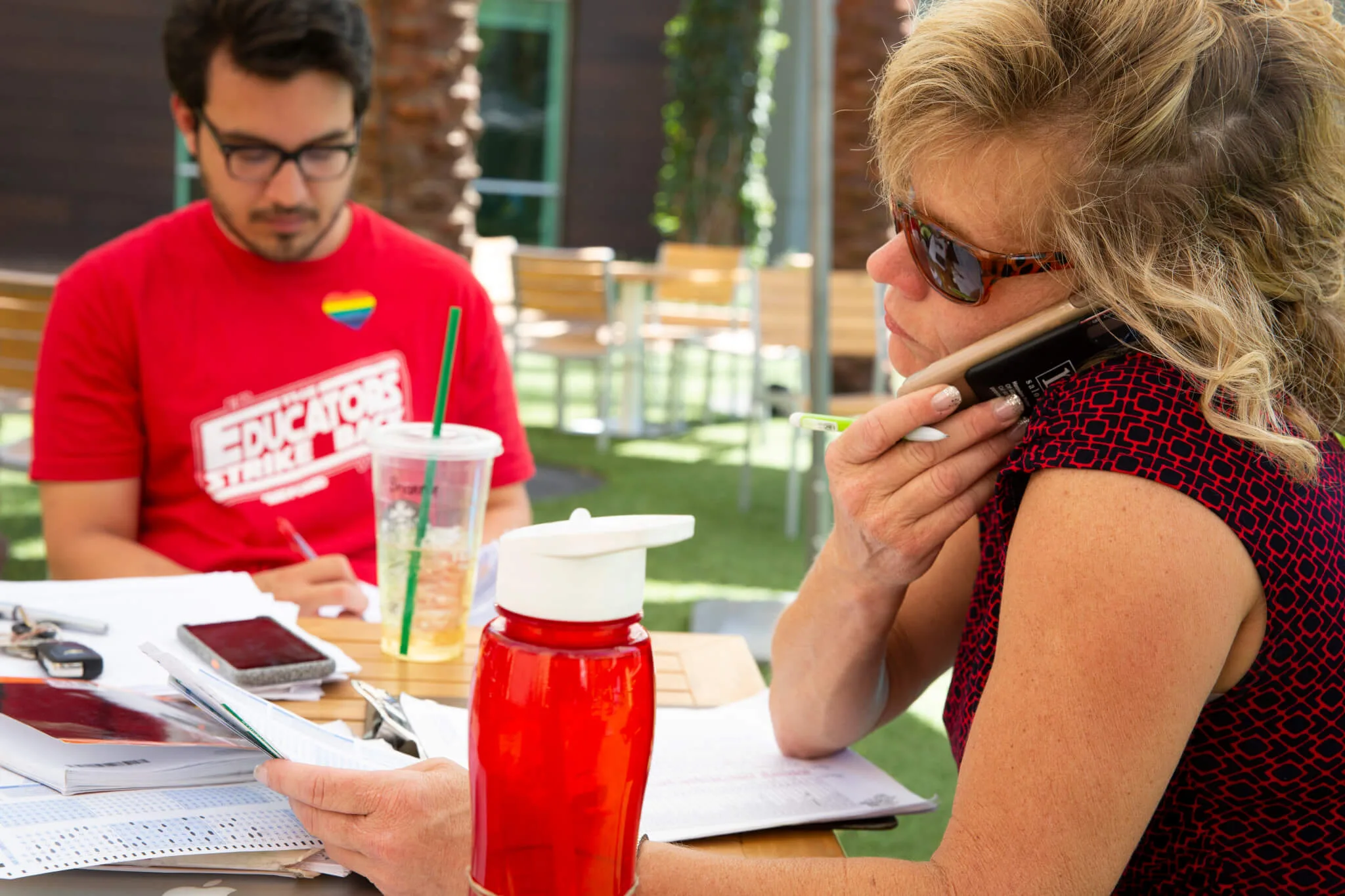
Christine Marsh answers a campaign phone call while she records grades from her English students in between campaign events at a "grade-in" with her fellow striking teacher Karson Shipp to demonstrate that they're still working in the interest of their students during the educators strike for public education funding on April 28 at Desert Ridge Marketplace in Phoenix, Ariz.
Gov. Doug Ducey has not yet made good on his promise to address a spending limit that blocks schools from accessing necessary funds in order to operate properly.
Democratic legislators and public school advocates on Sept. 15 called for a special legislative session to address the aggregate expenditure limit for Arizona public schools.
If no special session is called, public schools risk “catastrophic” budget cuts, potential teacher layoffs and furloughs, and suspension of school operations across the state.
Billions in Education Funding at Stake
Prominent Democratic legislators, including Sen. Christine Marsh and House Minority Leader Rep. Reginald Bolding, asked Gov. Doug Ducey and Republican legislators to honor a promise made earlier this year to call a special legislative session in order to either waive the AEL or increase the $1.15 million dollar cap.
If Ducey does not call a special session, school districts stand to lose billions of dollars that were already technically allotted to them.
A spokesperson for the governor told the Arizona Mirror that Ducey will call a special session if Democrats can prove they have the number of votes to override the AEL. No other details were offered.
What is the Aggregate Expenditure Limit?
The aggregate expenditure limit was established in 1980 by Arizona voters with the goal of limiting the amount of money spent by school districts in the state. The limit fluctuates depending on school enrollment from the previous year as well as inflation. The limit is lower this year due to school closures and student absences during the beginning of the COVID-19 pandemic.
School districts are technically allowed to exceed the limit, but it must be approved in the Legislature with a two-thirds vote.
The bill has not been updated since 1980, and public school advocates say it is “behind the times” in terms of costs that school districts now face, such as safety and security, technology, and mental health support for students.
An End to Temporary Fixes
According to Marsh, there needs to be a “long-term and permanent” solution to the AEL so that it does not remain a technical year-to-year issue as it has been in the past. For example, the Legislature had to vote in 2007 and again in 2008 to raise the cap.
Marsh also told The Copper Courier that unless the cap is raised, “a long-term solution would be for the Legislature to refer this to the ballot, and let the voters do a more permanent fix.”
Marsh stated that the limit needs to be lifted so that it is “consistent” with the national average, or Arizona will continue to be the lowest in the nation for aggregate expenditure limits.
“This is money that was already allocated, not extra money that [was allocated] without taking the extra step of lifting the AEL for the school year,” Marsh said.
As of Sept. 16, Marsh said that she had received “no word” from Ducey’s office regarding a special session, but is hoping that one is called before Nov. 1 to avoid “stress, uncertainty, and chaos” for students, teachers, and families.
Looking for the latest Arizona news? Sign up for our FREE daily newsletter.
Politics
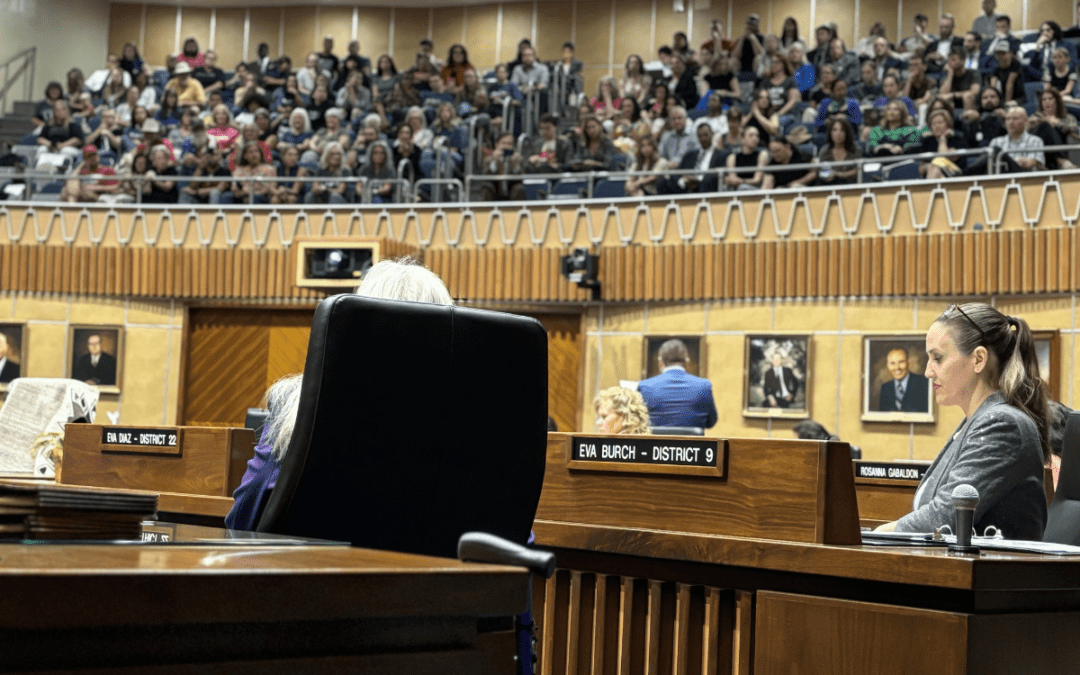
Democrats successfully force vote on repealing 1864 abortion ban, passes House
The Arizona legislature moved forward two bills Wednesday that would repeal the state’s 1864 abortion ban. A bill to repeal the ban has been...
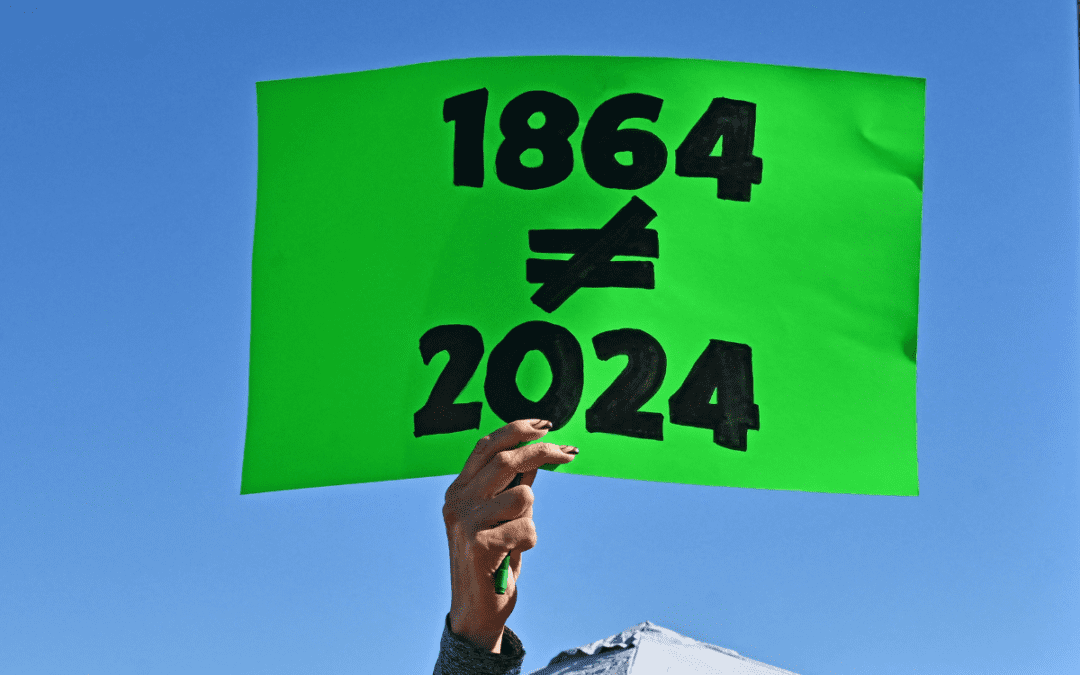
State Official: 1864 abortion ban gives Arizona ‘black eye’
Arizona’s role at the forefront of the climate crisis, defending democratic elections, and protecting reproductive rights has caught the attention...
Local News
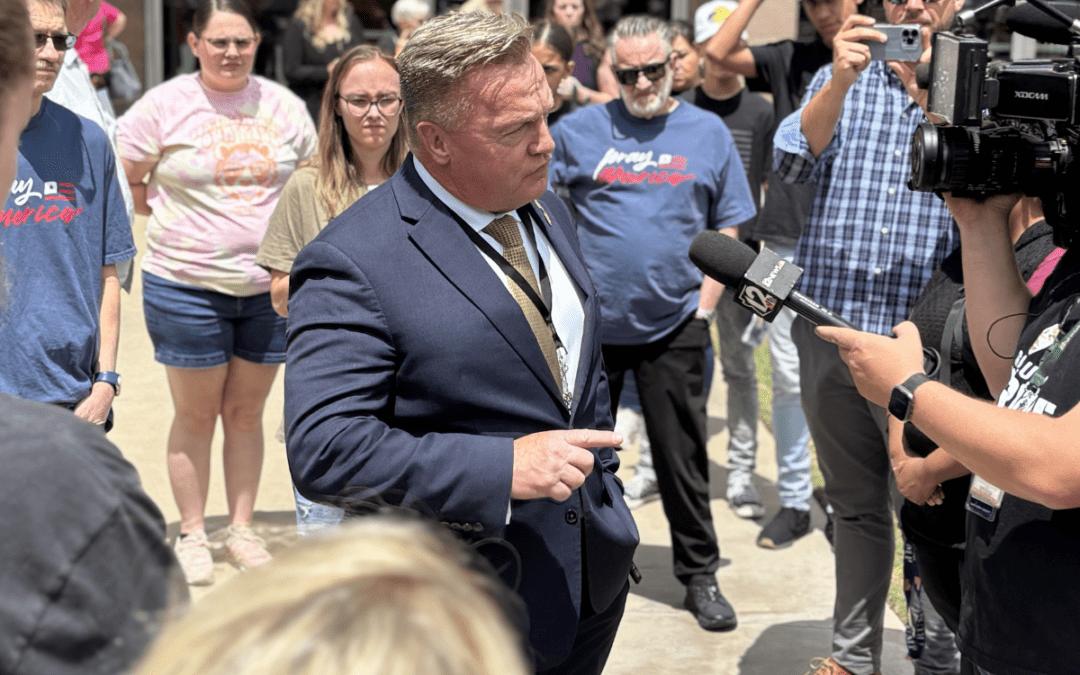
Arizona Sens. Anthony Kern, Jake Hoffman, indicted for fake election scheme
Eighteen individuals involved in a conspiracy to overturn Arizona’s election results in 2020 were indicted by a grand jury Wednesday and charged...
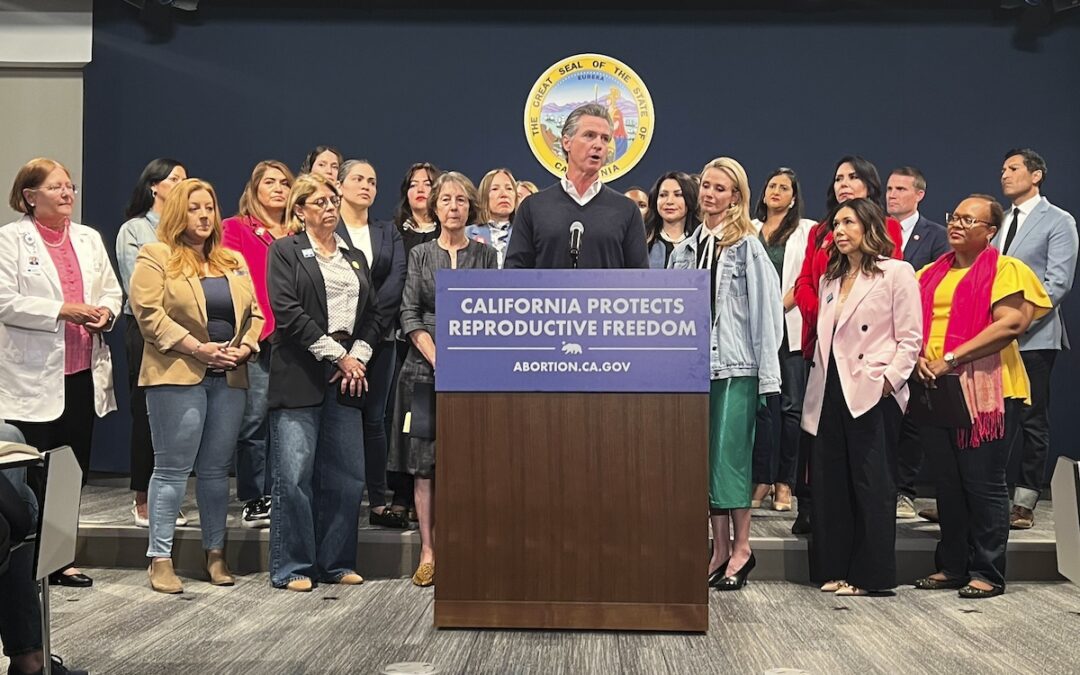
Gov. Gavin Newsom wants to let Arizona doctors provide abortions in California
California law generally allows abortion up to the point of fetal viability, which is around 24 weeks. SACRAMENTO, Calif. (AP) — Arizona doctors...




